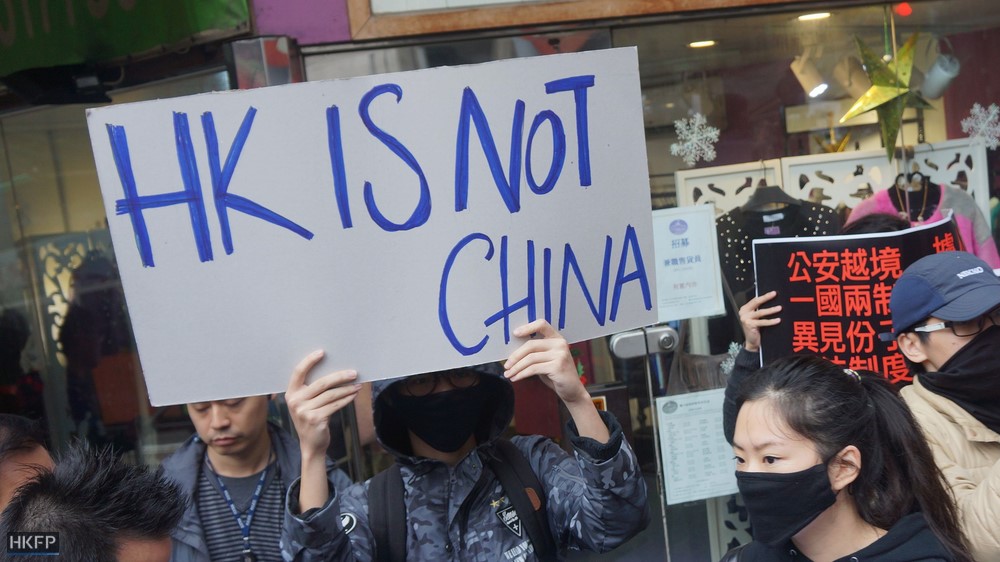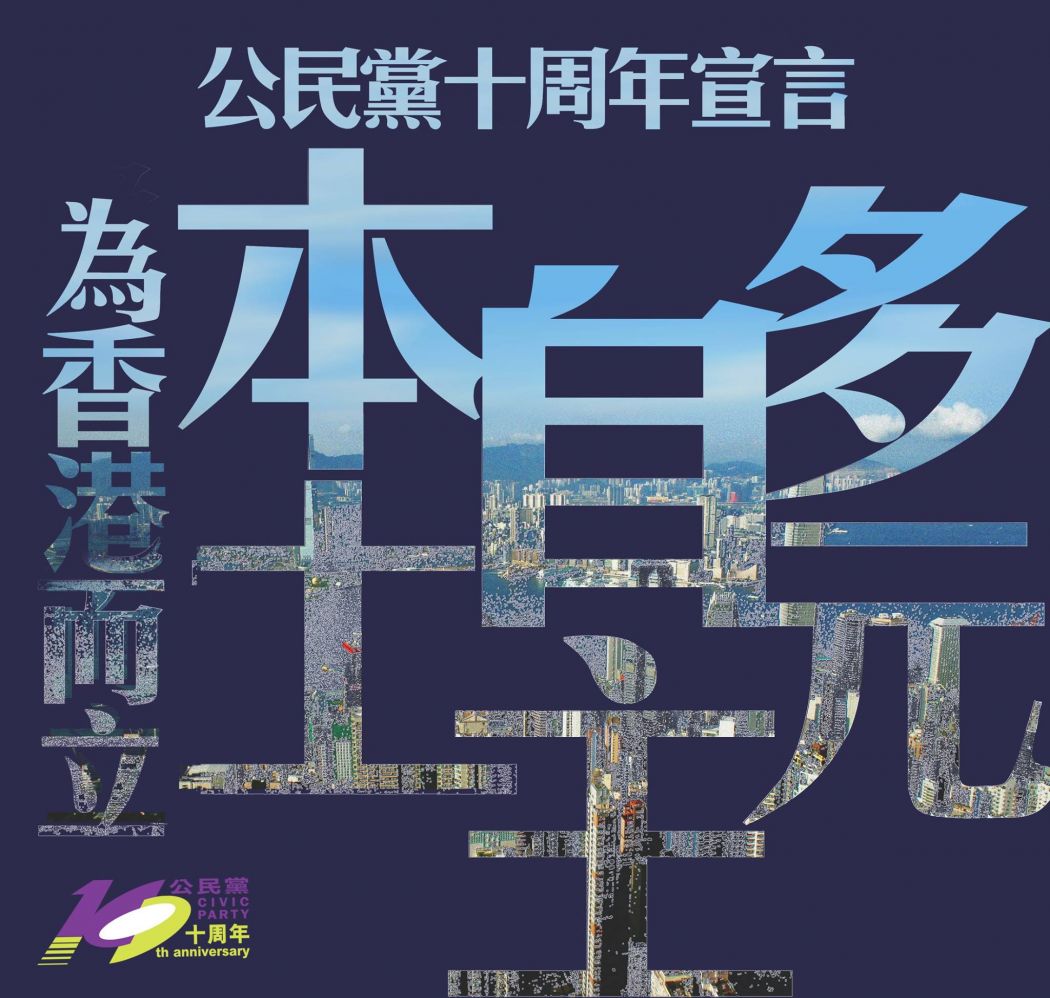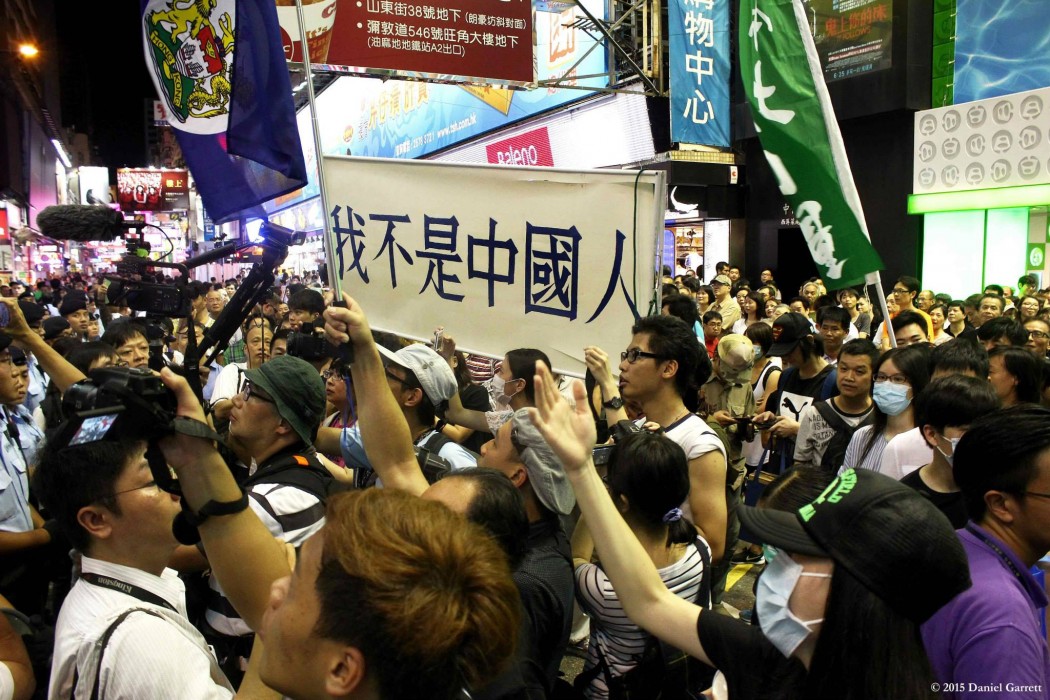Apocryphal as the independence story may sound at the moment, all parties now latch on to some localist vocabulary one way or another, blowing the wind of change in Hong Kong political rhetoric.
In 18th century England, it was not deemed justified for Lord Bolingbroke, the leader of the Tories, to form an official opposition in parliament and be openly critical of Sir Robert Walpole’s Ministry. To break this convention, Bolingbroke availed himself of the most noble virtue in political rhetoric at that time: ‘patriotism.’
Through eloquence and tactics in parliamentary debates, he skilfully argued that the existence of opposition actually manifested ‘patriotism.’ To follow this logic, any attempts of the Whigs to crush the Tories would be considered as treachery. The rhetorical effect of this concept was so powerful that Walpole had no choice but to tolerate their existence. Gradually, the opposition gained recognition and became legitimate in Westminster tradition.

You may now look askance at this archaic concept, but its cognate, ‘localism’, has precipitated a big, sea change in Hong Kong political language which is comparable to Bolingbroke’s time.
The localist doctrine varies from one group to another with a broad swathe of ideological positions surrounding Hong Kong-China relations after 1997. The vocabulary of the early localist movement was mainly of the conservationist and environmentalist character. Picketing was the style these localists adopted, as we see in the Queen’s Pier and Choi Yuen Tsuen protests. In addition to skirmishes between the activists and police, the movement often exudes nostalgia for the old colonial Hong Kong and collective memory of the ‘good old days,’ while the anti-Chinese sentiment of current magnitude hadn’t yet flared up.
The more recent movement, however, is much more militant and vigorous. Following the Mong Kok riots, ‘anti-locust’ and ‘liberate’ protests, these belligerent localists laid blame on politicians for their apparent incompetence to galvanise the government into action. We have no idea whether their tactics should be credited and effected any real change. But soon after these sporadic protests, the government immediately rolled forward some measures to mitigate public anger. All of a sudden, the old parties and politicians look diminished, mild and neutered.
So now, at least rhetorically, all parties are changing tack. To pander to the anti-mainland voters, they are now sanitising themselves from the past sins with the localist atonement.
The Civic Party, which common folks tend to view as a bourgeois club of well-off lawyers, was often berated for being out of touch with reality for what they set out to promise. Now, they talk more ‘local’ and ‘anti-China’ in their political agenda, proposed a motion ‘Safeguarding Hong Kong from Mainlandisation’ in the legislature last year, and issued a manifesto entitled ‘Founded for Hong Kong: Local, autonomous, and pluralistic’ to celebrate its tenth year. These actions, needless to say, are impregnated with the localist overtones.

The pro-establishment group also taps into the language of localism despite their knee-jerk reaction to political activism. Ip Kwok-him, an Executive Council member from DAB, once acknowledged the need to prioritise the interest of Hong Kong people as long as it doesn’t clash with the greater national interest. In a press conference, the party’s youth league also admitted that it has to go more ‘local’ in policy advocacy. Suddenly, the passion for Hong Kong returns in political language.
But are all parties now in solidarity with one another? Far from it. As we watch TV these days, people still fall back on habitual grooves of thought in Manichean fashion. In a style of spittle-flecked rant with which media is enamoured, we still pigeonhole each other into familiar tribes of ‘pro-democracy’ vs. ‘pro-establishment,’ ‘yellow ribbons’ vs. ‘blue ribbons,’ ‘localists’ vs. ‘Greater Chinese leftards,’ ‘moderates’ vs. ‘radicals,’ and so forth.
Such name-calling never fits the classical left-right axis over economic and social policy that saturates the fault line between social democrats and liberals in mature democracies. In reality, more often than not, these partisan labels indicate disagreement over moral positions rather than policy orientations. The line between ‘pan-democrats’ and ‘pro-establishment’ loyalists since 1990s demarcates one’s attitude towards the establishment.
As the blue-on-blue antagonism in the opposition is brewing these days, more divisive labels come: ‘radical democrats,’ ‘moderate democrats,’ ‘radical localists,’ ‘moderate localists,’ etc. They don’t compel people to think more about policy, but just indicate styles of street protests and demeanour in council meetings.

But if we take the lens of localism amid the ructions of these labels, parties can still do more policy talk, and the localists indeed did a good job in putting forward some progressive ideas. Take population policy as an example. Immigration has always been a minefield where nobody dared to trespass in the past. At first, the localist position was vilified as ‘right-wing populism,’ ‘bigotry,’ ‘discrimination,’ ‘racism’ and ‘scaremongering’ – the same complaints lodged against Liberal Party and New People’s Party for their attitudes towards immigrants from China.
Now, with the localist language in power, all parties seem to acknowledge the need to bring it under control, look into the one-way permit system, and review the issue of right of abode in the Article 24 of the Basic Law.
Another example of progressivism is the localists’ call for perpetuating the Basic Law beyond 2047. Their argument, which draws on Articles 5 and 121 in relation to the expiration of land leases, does resonate with Henry Litton, the former Permanent Judge of the Court of Final Appeal, who spoke on the Hong Kong’s judiciary and touched on the 2047 issue at the Foreign Correspondents’ Club last year. No one labelled Henry Litton as a ‘radical’ for what he said, but it agrees very much with the localist agenda. The means to solve these problems may differ from one party to another, but the end is almost the same.
Right now, we have a small faction within the localist camp agitating for full independence. The independence rhetoric is deliberately obtuse to Beijing’s raw nerves beyond the pale. I don’t know whether they will gather much steam to beat the big parties and become a ruling political force in the coming election. However, one thing is for sure: like ‘patriotism’ in Bolingbroke’s time, out of historical necessity, the rhetoric of localism has pushed the frontiers of political discussions. What the localists want is actually quite modest and completely innocuous: to uphold the ‘one country, two systems’ constitutional principle and clamour for greater political autonomy of the city in China.
Further reading:
Quentin Skinner, ‘The Principles and Practices of Opposition: the Case of Bolingbroke versus Walpole’, in Neil McKendrick (ed.), Historical Perspectives: Studies in English Political Thought and Society (London: Europa, 1974), pp.93-128.
